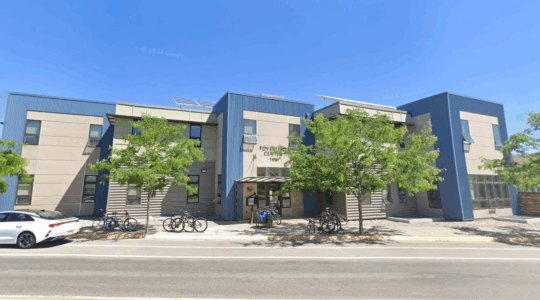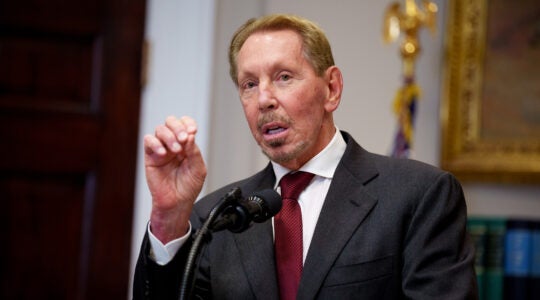NEW YORK, Feb. 27 (JTA) In his first address to world Jewish leaders since being elected prime minister, Ariel Sharon reiterated what have become his trademark themes: aliyah to Israel, Zionist education worldwide and the settlement of Jews in sparsely populated regions of the country.
Sharon told visiting Jewish leaders on Tuesday that he hopes to draw 1 million Jewish immigrants to Israel over the next 10 years. His goal, he said, is that a majority of the world’s Jewish population estimated today at 13 million will live in the Jewish state by 2020.
Sharon made the comments to the Jewish Agency for Israel’s Board of Governors, who came from nearly 20 countries for a meeting in Jerusalem. Earlier in the day, Sharon made similar comments to a five-member delegation of the United Jewish Communities, the umbrella group of local federations across North America.
Aside from the former Soviet Union, which in recent years has been Israel’s main source of immigrants, Sharon singled out Jewish communities in economically unstable countries such as Argentina, Brazil and Mexico and in crime-wracked South Africa.
Sharon said that Jews from these countries must be “persuaded” that Israel is a viable alternative as a new homeland, according to a Jewish Agency spokesman who attended the event.
The South African Jewish community, for example, once numbered 120,000 but now has dwindled to 80,000. South African Jews often emigrate to Australia, New Zealand or Canada.
Meanwhile, Sharon said he would promote further Jewish settlement of the Negev desert, the Galilee and “Greater Jerusalem.” He didn’t elaborate on how he defines this last area, which is a source of conflict with the Palestinians.
In some regions of Israel, Sharon said, Jews are significantly outnumbered by Arabs. The problem is, “if you don’t live on the land, you can lose the land,” said UJC President and CEO Stephen Solender, relaying Sharon’s remarks.
Finally, Sharon outlined three conditions before peace talks can resume with the Palestinians: Palestinian Authority President Yasser Arafat must make an “unequivocal public declaration” to stop anti-Israel violence, the Palestinian Authority must take concrete steps against incitement; and coordination must be renewed between Israeli and Palestinian security forces, which would allow Israel to re-open its borders to Palestinian goods and workers.
JTA has documented Jewish history in real-time for over a century. Keep our journalism strong by joining us in supporting independent, award-winning reporting.





